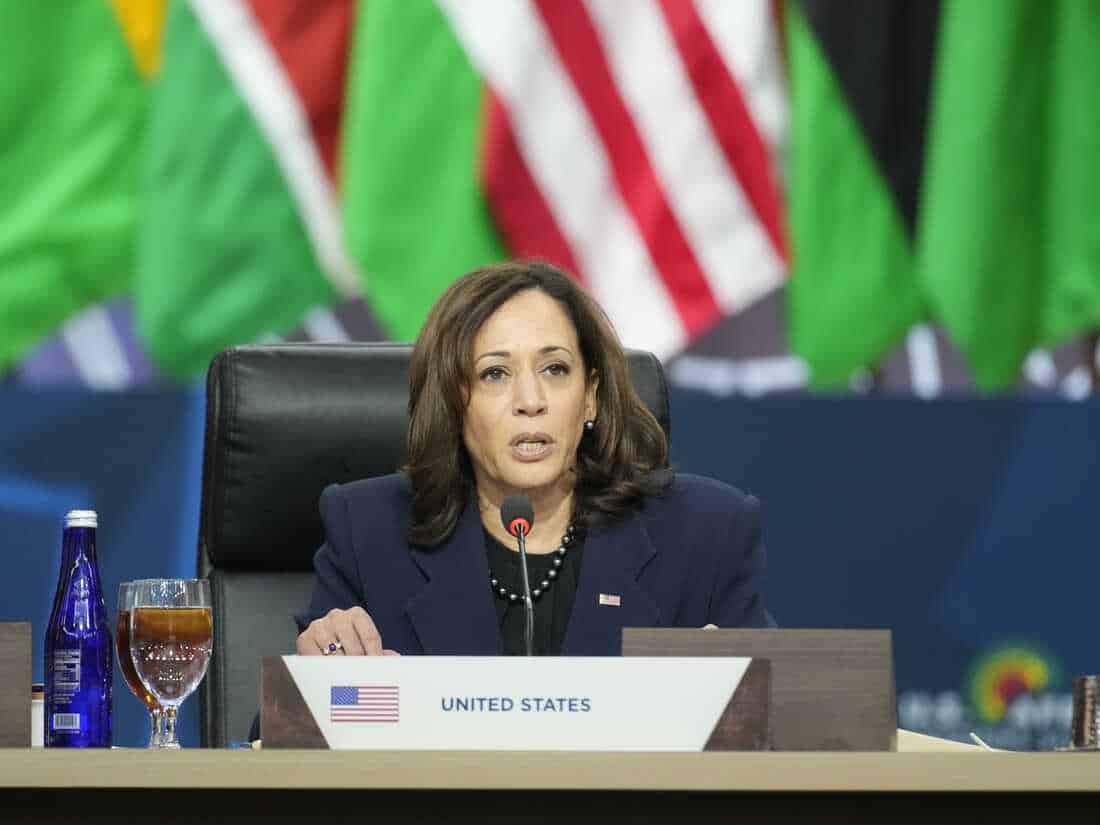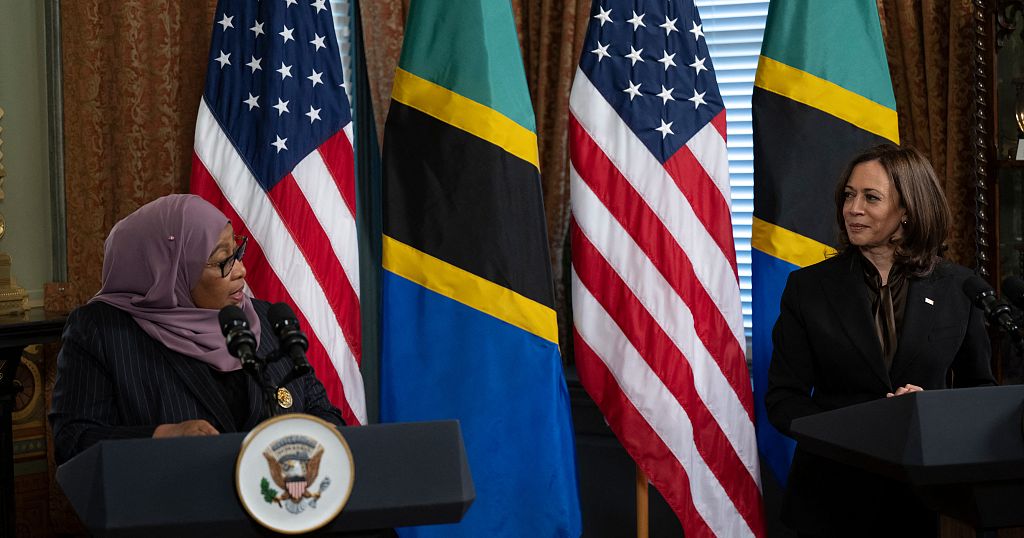News
Vice President Harris’ Trip Aims To Deepen US Ties In Africa

WASHINGTON — The U.S. Vice President Kamala Harris will strive to strengthen and reinterpret U.S. partnerships in Africa during a weeklong trip that marks the Biden administration’s latest and most visible outreach as it moves to offset China’s growing influence.
Harris intends to travel to Ghana, Tanzania, and Zambia, focusing on economic development, climate change, food security, and a growing young population. She is set to arrive in Ghana’s capital, Accra, on Sunday. Doug Emhoff, her husband, is accompanying her.
“For far too long, the United States’ foreign policy establishment has treated Africa as an after-school project rather than part of the core curriculum,” said Michelle Gavin, an Africa expert at the Council on Foreign Relations and a former United States ambassador to Botswana. “I see a concerted effort now to change that mindset.” However, it takes time.”
Harris will be widely followed across Africa as the first person of color and the first woman to serve as America’s vice president. Harris was reared in California even though her mother was born in India and her father was born in Jamaica.
“Everyone is excited about Kamala Harris,” said Idayat Hassan, director of Abuja, Nigeria’s Centre for Democracy and Development. “You can be whatever you want — that’s what she represents to many of us.”
A lecture in Accra and a visit to Cape Coast Castle, where enslaved Africans were once put onto ships bound for America, will highlight Harris’ trip. Harris also intends to meet with authorities in each country she visits and to lay a wreath in memory of the 1998 bombing of the U.S. Embassy in Dar es Salaam, Tanzania’s capital.
Harris will be widely followed across Africa as the first person of color and the first woman to serve as America’s vice president.
Her schedule also includes a few non-traditional sites designed to emphasize the exciting future of a continent with a median age of only 19.
Harris intends to visit a recording studio in Accra, meet with female entrepreneurs, and visit a tech accelerator in Dar es Salaam. Harris is scheduled to meet with corporate and charity leaders in Lusaka, Zambia’s capital, to discuss boosting access to digital and financial systems.
Emhoff’s events have a similar focus. During his visit to Ghana, he intends to hold a town hall meeting with performers from a local television show, attend a girls’ basketball clinic, and tour a women-run chocolate company.
According to administration sources, the goal is to promote Africa as a site for investment rather than just aid packages, a subject that Harris underlined in December during a U.S.-Africa meeting in Washington.
“Because of your energy, ambition, and ability to turn seemingly intractable problems into opportunities,” she remarked, “I am an optimist about what lies ahead for Africa and, by extension, for the world.” “Simply put, your ability to see what could be, unburdened by what has been.”
Harris will spend three nights in Ghana, two nights in Tanzania, and one in Zambia before returning to Washington on April 2.
“It’s trip to support reformers,” said Vanda Felbab-Brown, co-director of the Brookings Institution’s Africa Security Initiative. “All three countries have faced significant challenges and changed dramatically.”
Tanzania’s first female president has loosened restrictions on opposition parties and rallies.
Ghana is facing a debt crisis and excessive inflation, dragging down an economy that was once among the best in the region. It is particularly concerned about instability caused by Islamist extremists and Russian mercenaries operating in countries north of Ghana.
Tanzania’s first female president has loosened restrictions on opposition parties and rallies. Zambia has implemented its reforms, such as decriminalizing presidential slander. However, democratic development in both areas is thought to be fragile.
Treasury Secretary Janet Yellen, Secretary of State Antony Blinken, and First Lady Jill Biden have traveled to Africa. President Joe Biden is set to leave office later this year.
Harris will visit Zambia for the first time since childhood when her maternal grandpa worked there. He was a civil servant from India who assisted with refugee relocation after Zambia gained independence from Britain.
“Grandpa was one of my favorite people in the world and one of the earliest and most lasting influences in my life,” Harris writes in her book.
The December U.S.-Africa meeting was the first since President Obama hosted one in 2014. Although Washington’s approach to Africa has had some historic successes, such as President George W. Bush’s HIV/AIDS effort, which has saved millions of lives, there have also been times of neglect.
“There’s a lot of skepticism and doubt about American staying power,” said Daniel Russel, a former State Department official who now works at the Asia Society Policy Institute. “They’re used to American promises that fizzle out and don’t amount to much.”
In stark contrast, China has led far-reaching infrastructure projects and increased telecom activities throughout the region.
According to John Kirby, a White House national security spokesman, African leaders are “beginning to realize that China is not their friend.”
“China’s interests in the region are purely selfish, in contrast to the U.S.,” he remarked. “We are truly committed to assisting our African friends in dealing with many challenges.”
Senior administration officials have been careful not to characterize Harris’ visit as another step in a geopolitical contest, which might alienate African leaders weary of choosing sides between global heavyweights.
They are now waiting to see what Harris and the U.S. have to give over the next week.
“Because of her profile, she has a very good reputation in Africa,” said Rama Yade, senior director of the Atlantic Council’s Africa Center. “However, beyond that, public opinion in the three countries will develop expectations very quickly.”
SOURCE – (AP)











































